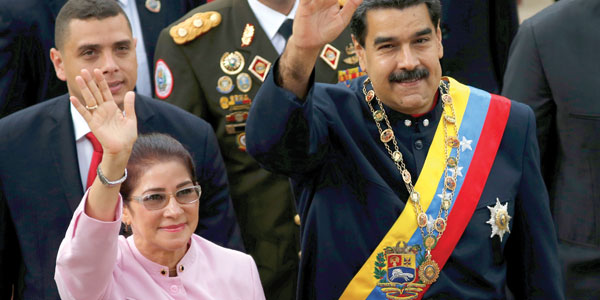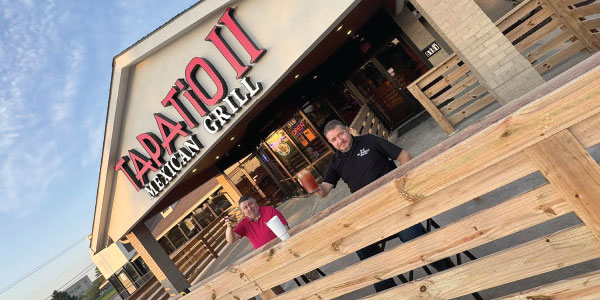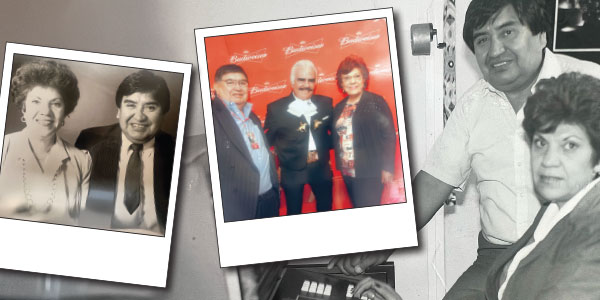
By Jorge Ramos
Nicolás Maduro’s lack of legitimacy lies at the very heart of the Venezuelan crisis. Why isn’t he the rightful president of the country? Well, for starters, the two elections he won (in 2013 and 2018) were fraudulent. On top of that, he has “killed hundreds of young people in the streets,” according to his former intelligence chief, Hugo Carvajal, and has used repression to crush his people and hold on to power. It’s no wonder Venezuelans call him “the usurper.”
Maduro was never a democrat. The strongman Hugo Chávez hand-picked him to take his place. “Vote for Nicolás Maduro as president,” Chávez told his supporters shortly before his death in 2013, a time when few thought “Chavismo” could live on without Chávez.
And yet Maduro managed to claim that power, allegedly winning 50.61% of the vote in a rigged election. There were serious accusations of voting irregularities, and of intimidation at polling centers by armed pro-government groups known as “colectivos.” Opposition presidential candidate Henrique Capriles refused to accept the results, and called for a recount. But the “Chavista” machine prevailed.
In 2018, the fraud continued. Maduro illegally called for early presidential elections to be held on May 20. He then barred the opposition candidates who could have defeated him — Capriles and the political prisoner Leopoldo López — from running for office. He also made sure that no international observers were present, and that a government agency under his control, the National Electoral Council, oversaw the vote count. The 2018 election can be compared to a soccer game in which the other team doesn’t appear, there’s no referee and the final score is completely made up. That’s how Maduro “won” it with 67% of the vote.
Maduro fits the definition of a usurper perfectly: He has a clear record of electoral fraud, kills and tortures people using his security forces and “colectivos” (as per a report from the Office of the United Nations High Commissioner for Human Rights) and locks up hundreds of political prisoners (989 according to local human rights organization Foro Penal). The sole option left to many Venezuelans is to flee their country. Some 3 million have left in the past three years.
Two decades since its founding, the Bolivarian revolution has failed. Annual inflation reached 1.37 million percent in 2018, the meager monthly minimum wage stands at around $5.50 (according to current exchange rates) and Caracas, the capital, has become one of the most dangerous cities in the world. Because of Maduro, millions of Venezuelans now suffer from disease and extreme poverty.
I said all this to Maduro’s face when I interviewed him on Feb. 25 in Caracas. I also showed him a video of three young men looking for food in a garbage truck, which profoundly contradicted his rhetoric of a prosperous and progressive country. He couldn’t stand to watch it and called the interview off — a reaction I have never witnessed from any other leader.
While it’s true that all around the world — even in the United States — it’s possible to see people eating garbage, this particular video clearly struck a chord with Maduro and has since gone viral. Here’s why:
— No one gave me the video; I recorded it on my cellphone. And it wasn’t “staged for the media” as the regime has said — a fact confirmed by the Spanish newspaper El Mundo a few days later, when it interviewed Jesús, one of the men in the video.
— Two of the three young men directly blamed Maduro for his plight, and demanded that he be ousted.
— The scene in the video took place just minutes away from the Miraflores presidential palace.
— The video debunks the official narrative that Venezuela is better off with Maduro and the Chavistas in power.
Luckily, we sent the video to Univision in Miami before we started the interview. Sadly, we cannot say the same about our four cameras and our other technical equipment, which were confiscated by government officials following my conversation with Maduro. It seems that many members of the regime are eager to follow the president’s lead as agents of violence and repression. To this day, none of our gear has been returned, including the memory cards on which the interview was recorded.
If Maduro hates being called a usurper, there is a quick and easy fix: He just has to give back everything he has stolen from others.
________________________________________________________________________
El Usurpador y el Video
En el mismo centro de la crisis en Venezuela está la ilegitimidad de Nicolás Maduro. ¿Y por qué no es el presidente legítimo? Por haber participado en dos fraudes, por ser responsable del asesinato de “cientos de jóvenes en las calles”, según su ex jefe de inteligencia Hugo Carvajal, y por usar la represión para mantenerse en el poder. Por eso le llaman el usurpador en Venezuela.
Maduro nunca fue un demócrata.
El caudillo Hugo Chávez lo escogió por dedazo para continuar con la revolución bolivariana. “Elijan a Nicolás Maduro como Presidente”, les pidió Chávez a sus seguidores, poco antes de su muerte en el 2013, y en un momento en que pocos pensaban que podría haber chavismo sin Chávez. Ese es su origen antidemocrático.
Maduro se trepa al poder, usando todos los recursos del gobierno, en las sucias elecciones del 2013 — que supuestamente gana con el 50,61% del voto. Hay graves denuncias de irregularidades e intimidación en lugares de votación por parte de “colectivos” armados. El candidato opositor Henrique Capriles desconoce los resultados e impugna las elecciones. Pero el aparato chavista se impone.
Luego vino el fraude del 2018. Maduro adelanta ilegalmente las elecciones para el 20 de mayo de ese año, inhabilita a candidatos de la oposición que le podrían ganar — como Capriles y el prisionero político Leopoldo López — prohíbe la presencia de observadores internacionales y hace su propio conteo a través un organismo que él controla (Consejo Nacional Electoral). Esto es como un partido de futbol en el que no llega el equipo contrincante, se juega sin árbitro y donde se inventa el marcador final. Así es como Maduro “gana” con el 67% del voto. Otro fraude.
Maduro es la definición perfecta de un usurpador: Cometió fraudes electorales, sus fuerzas de seguridad y sus “colectivos” han asesinado y torturado, según el reporte de la Alta Comisionada para Derechos Humanos de la ONU, y tiene en prisión a 989 prisioneros políticos, de acuerdo con Foro Penal. La única alternativa para muchos ha sido huir del país. Casi 3 millones se han ido en los últimos tres años.
La revolución bolivariana ha fracasado después de 20 años. La inflación es mas de 1 millón por ciento anual, el salario mínimo es de $5.50 al mes y Caracas es una de las ciudades más peligrosas del mundo. Por su culpa, millones de venezolanos sufren de enfermedades y pobreza extrema.
Se lo dije en su cara a Maduro en la entrevista que tuvimos el lunes 25 de febrero en Caracas. Le mostré un video de tres jóvenes comiendo de un camión de basura que iba en contra de su narrativa triunfalista y de progreso social. No lo aguantó. Se paró y terminó la entrevista.
Y ya que estamos con el asunto del video — y aquí lo pueden ver: bit.ly/2TMnqwD — déjenme explicarles por qué es tan fuerte. Sí, es cierto, en todo el mundo, incluso en Estados Unidos, se puede ver a gente comiendo desperdicios. Pero este video tiene otra dimensión por las siguientes razones:
— Por este video es que Maduro termina la entrevista y no por ningún otro. No conozco a otro gobernante que haya reaccionado de la misma manera.
— Nadie me lo dio. Lo filmé yo con mi celular. Y no fue un “show mediático” como trató de insinuar el régimen. El diario El Mundo de España entrevistó días después a Jesús, uno de los jóvenes que aparecen en el video, y corrobora todo lo ocurrido.
— Dos de los tres jóvenes del video critican directamente a Maduro por su situación y piden su renuncia.
— Ocurre a solo unos minutos del Palacio de Miraflores.
— Desmorona el mensaje oficial de que Venezuela está mejor con Maduro y los chavistas en el poder.
Por eso este video es distinto y se hizo viral. Afortunadamente lo enviamos a las oficinas de Univision en Miami antes de la entrevista. Pero no corrieron la misma suerte nuestras cuatro cámaras y todo el equipo técnico que fue confiscado luego del encuentro con Maduro. Hoy, todavía, no nos lo han devuelto. Ni las tarjetas donde se grabó la entrevista.
Maduro es un usurpador y parece ser que muchos miembros de su régimen también están en el mismo negocio. Si a Maduro le molesta tanto que le llamen “usurpador”, basta con que regrese lo que no le pertenece.










